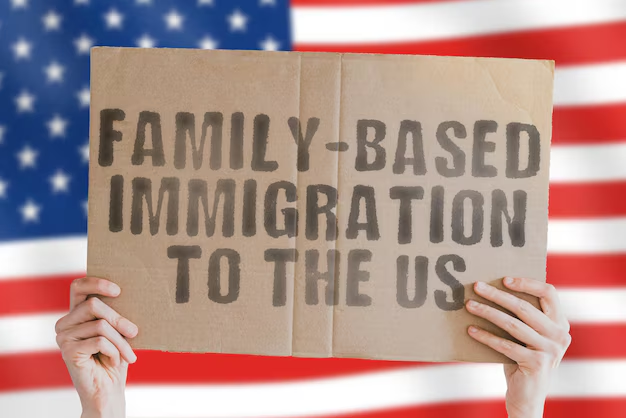Understanding Welfare Access for Undocumented Immigrants: A Comprehensive Guide
Debates surrounding immigration often bring welfare programs into the spotlight. Notably, the question, "Can illegal immigrants get welfare?" is frequent and complex. In this guide, we'll delve into this topic with clarity and precision, exploring various facets influencing welfare access for undocumented immigrants.
🌎 The Legal Framework Governing Welfare Access
Immigration Status and Eligibility
At the heart of welfare eligibility lies one's immigration status. In the United States, federal law typically restricts access to federal public benefits, including welfare, to citizens and some eligible non-citizens (such as lawful permanent residents). The Personal Responsibility and Work Opportunity Reconciliation Act of 1996 is a pivotal statute that limits federal benefits to undocumented immigrants.
Exceptions and Nuances
While the federal law is stringent, there are exceptions where undocumented immigrants might access certain benefits:
- Emergency Services: Under federal law, everyone, regardless of immigration status, can access emergency medical services.
- School Lunch Programs: Children, irrespective of their legal standing, are often eligible for free school meals.
- State-Level Variations: Some states have laws providing limited assistance to all residents, including undocumented immigrants.
🎓 The Role of State and Local Programs
State Variability
Different states have varied approaches to aid:
- Inclusive Policies: States such as California and New York offer broader access to certain services, like health care for minors regardless of immigration status.
- Limited Access: Other states maintain stricter policies aligning closely with federal guidelines.
Local Assistance Programs
Beyond state programs, many cities and counties operate their own assistance programs:
- Community Clinics: These often provide healthcare services irrespective of one's legal status.
- Nonprofit Organizations: Various nonprofits offer food, legal aid, and social services to undocumented individuals without federal restrictions.
🧭 Navigating Access to Resources
Seeking Assistance
Undocumented immigrants seeking assistance can consider the following:
- Local Nonprofits: Many organizations focus on immigrant communities, providing essential resources and support.
- Legal Aid Services: Legal advice is crucial, especially concerning rights and available state-level benefits.
Practical Considerations
Understanding eligibility and application processes for available services is vital:
- Documentation Needs: Some programs require specific documentation; knowing what's needed beforehand is key.
- Language Support: Access materials in preferred languages to ensure understanding and accurate application submissions.
🔍 Myths and Misconceptions
Welfare accessibility for undocumented immigrants is surrounded by several misconceptions:
- Widespread Access Myth: The belief that undocumented immigrants broadly access welfare is misleading. Federal restrictions significantly limit these possibilities.
- Cost Burdens: Contrary to some views, the actual economic impact of providing limited services to undocumented immigrants is nuanced and often overstated.
🤝 Community and Social Impact
Economic Contributions
Undocumented immigrants contribute markedly to economies through labor, consumption, and even taxes. These contributions are often overlooked in debates on resource access.
Social Connections
Many communities benefit culturally and socially from diverse populations, including undocumented immigrants, who add to the societal fabric with traditions and businesses.
🧭 Key Takeaways 🗝️
- Emergency Access: Federal law ensures access to emergency services, regardless of immigration status.
- State Differences: Some states provide more inclusive programs; local variations are significant.
- Community Support: Nonprofits and local aid programs are crucial resources.
- Myths vs. Reality: Distinguishing between perceptions and actual legal frameworks is critical.
Important Summary Points
Here's a quick reference to help you navigate welfare access for undocumented immigrants:
- 🏥 Emergency Services: Accessible to all, regardless of status.
- 📚 Education & Meals: School-related programs often extend to children regardless of legal standing.
- 🗺 Varying State Policies: Check your state's specific rules.
- 📋 Consult Legal Aid: Understanding eligibility is key.
- 🤝 Nonprofits as Partners: They serve as bridges to needed resources.
By examining these aspects, readers gain a clearer picture of the available social safety nets for undocumented immigrants and understand the limitations imposed by law. For any immigrant navigating these systems, informed choices and seeking reliable support can make significant differences.

Related Topics
- Are Illegal Immigrants Eligible For Welfare
- Can Illegal Aliens Get Welfare
- Can Illegal Immigrants Get On Welfare
- Can Illegal Immigrants Get Welfare In California
- Can Illegal Immigrants Qualify For Welfare
- Can Illegals Get Welfare
- Can Police Force Entry For a Welfare Check
- Can Undocumented Immigrants Get Welfare
- Can You Do a Welfare Check Anonymously
- Can You Refuse a Welfare Check
